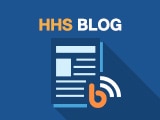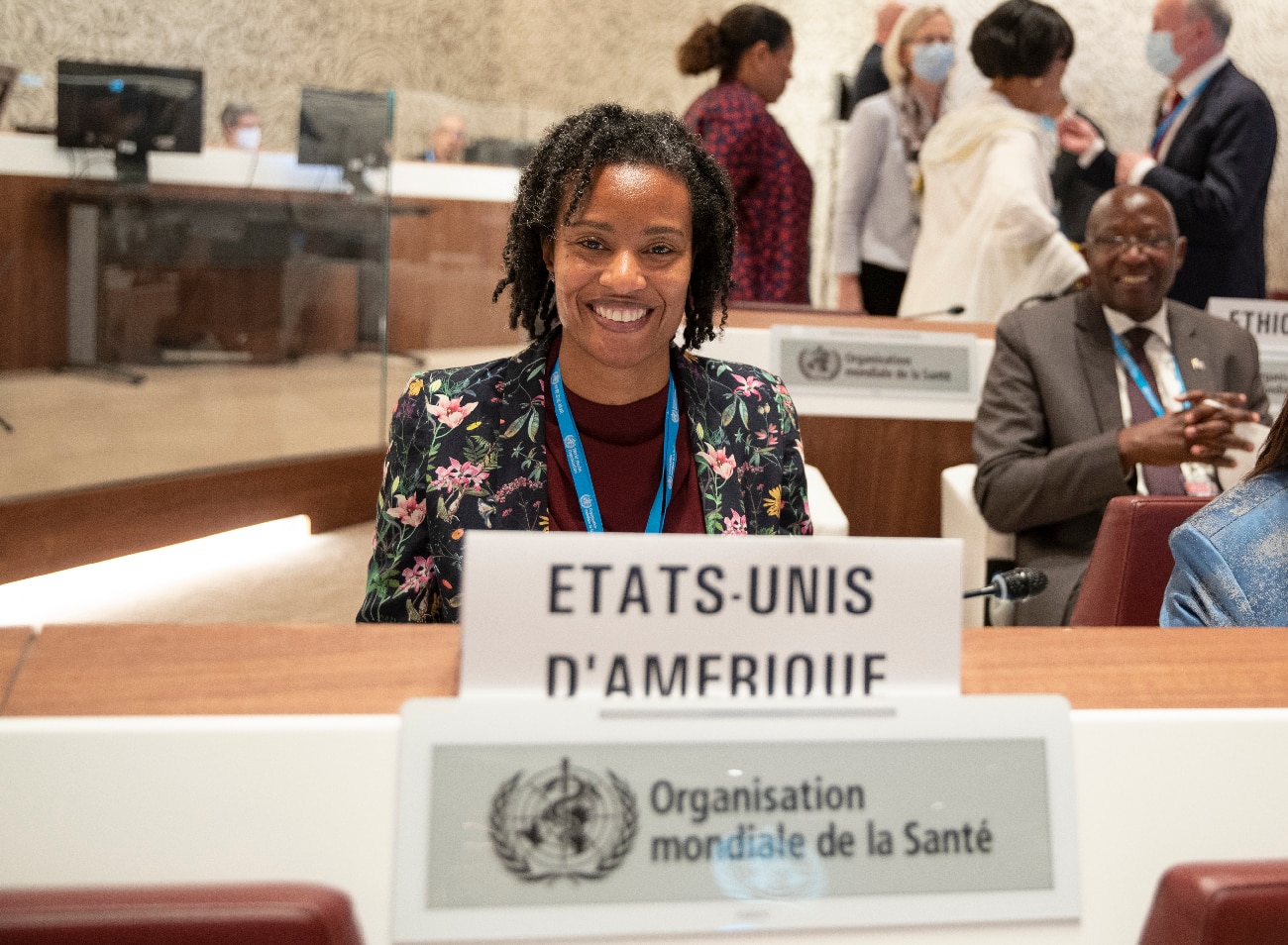202-690-6343
media@hhs.gov
Letter to U.S. Governors from HHS Secretary Xavier Becerra on COVID-19 Resources
December 15, 2022
Dear Governor:
Thank you for your continued leadership on our nation’s COVID-19 pandemic response. We have made significant progress through this sustained effort, and there is more work we can do together. As expected, we are already seeing COVID-19 cases and hospitalizations increase in parts of the country following the Thanksgiving holiday. With the winter holidays fast approaching, it is essential that we step up our efforts to reduce hospitalizations and deaths, as well as disruptions and strain on our health care system. Working together, we can and are prepared to do this. I’m writing today to reiterate the federal government’s ongoing commitment to supporting your efforts, and to remind you of the existing available resources to help you manage the winter ahead.
If we act now, we can prevent a repeat of past winters. This starts with getting more Americans – particularly people who are 50 and older and other high-risk individuals, including people who live in congregate settings like long-term care facilities – their updated COVID-19 vaccine. These updated vaccines provide protection against the variants of the virus we are facing today. More than 40 million people have gotten their updated COVID-19 vaccine, but vaccination coverage varies dramatically from state to state. Nationwide, just over 13 percent of Americans, and only 36% of people over the age of 65, have gotten their updated shot. The Administration is working tirelessly to increase that number, and we need you to lead as well. We must also drive additional progress on access to and uptake of COVID-19 treatments, which will help reduce burden on our hospitals and save lives.
We have a responsibility to avoid the most serious repercussions of this virus; with the updated vaccines and treatments we now have, deaths are largely preventable. You can help to make sure that your residents remain safe by taking steps right now to increase access to COVID-19 prevention and treatment measures and to strongly encourage the use of them. To that end, I ask all states, counties, and communities to:
- Set up additional vaccination sites – including pop-up sites – to get as many people vaccinated with the updated COVID-19 shot, particularly targeting seniors and those who live in congregate settings.
- Make key supplies such as tests readily available to anyone who need them.
- Set up COVID-19 testing sites – should conditions demand.
- Launch Test to Treat sites – where communities can get tested for free and if they test positive, potentially be prescribed a free treatment that they receive on site.
- Share your data regularly with local, state, Tribal and federal partners so we have a shared understanding of how these infections are affecting your communities.
Some of the federal resources that remain available to you include:
We also encourage all jurisdictions to continue to set up innovative Test to Treat models to expand access to life-saving treatments, including through telehealth and mobile Test to Treat options. Over the course of 2022, Test to Treat has expanded beyond physical locations to also include streamlined services that take advantage of at-home antigen tests, telehealth clinical evaluation, and home delivery of oral antivirals.
- Updated COVID-19 Vaccines: Vaccines continue to be our most important tool for preventing serious illness, hospitalization, and death, and we urge all people stay up to date on their COVID-19 vaccinations by receiving the new bivalent vaccine. As we continue to work together to get more people vaccinated, the federal government stands ready to support your efforts. In addition to providing the vaccines free of charge, HHS can also support states, providers, and stakeholders with educational resources to share information about the vaccine, available at wecandothis.hhs.gov. The federal Health Resources and Services Administration (HRSA) also recently launched a new $350 million initiative for HRSA-supported health centers to increase COVID-19 vaccines in their communities, with a specific focus on underserved populations. This funding will support health centers administering updated COVID-19 vaccines through mobile, drive-up, walk-up, or community-based vaccination events, including working with community-based organizations, to increase the administration of COVID-19 vaccines.
- Testing and Treatments: COVID-19 testing, which is now widely available, continues to be vital to mitigating the spread of disease, and providing timely diagnoses that can lead to life-saving treatment. Early detection of infection is essential as COVID-19 oral treatments must be started within five to seven days of symptom onset. One of the most important available treatments continues to be the oral antiviral pill, Paxlovid (nirmatrelvir/ritonavir), which has been shown to reduce the risk of hospitalization or death by about 90 percent. The Biden Administration has dramatically increased access to both Paxlovid (nirmatrelvir/ritonavir) and Lagevrio (molnupiravir), and supplies are widely available at pharmacies, Test to Treat sites, long-term care facilities, and other locations nationwide. We urge you to continue to work with your state health officials to ensure that providers, patients, and the general public are aware of access to free, life-saving treatments. We also encourage you to support local health departments and health systems in setting up infusion clinics for Veklury (remdesivir). This antiviral infusion is an important treatment option especially for immunocompromised patients.
- Focus on seniors, people with disabilities, and residents and workers in skilled nursing facilities, assisted living facilities, and other congregate settings: About 9 of every 10 deaths from COVID-19 has occurred amongst Americans over 50. People with disabilities – particularly people who are immunocompromised – also continue to face increased risks from COVID-19. We should take every opportunity to work together to get seniors and other high-risk people vaccinated and ensure their access to life-saving therapeutics. This is particularly critical for people in congregate settings like nursing homes and assisted living facilities, and for older adults and people with disabilities living in underserved communities. We encourage all states and jurisdictions to increase efforts to protect older adults and people with disabilities, and we are working to increase flexibilities for providers and strengthen partnerships that have focused on vaccine access, including to:
- Enable skilled nursing facilities to administer COVID-19 vaccines via temporary flexibilities; and
- Provide $125 million in new funding to senior centers, area agencies on aging, centers for independent living and other community-based aging and disability organizations for vaccine clinics, in-home vaccinations, transportation and other supportive services to expand vaccinations for older adults and people with disabilities, particularly those living in underserved communities.
To protect people in skilled nursing facilities and other congregate settings, we encourage you to:
- Revive the nursing home “strike teams” states used in earlier stages of the pandemic in order to surge crucial supports for preventive and treatment efforts in these settings;
- Collaborate with partners to encourage emergency medical technicians and home health aides to deliver vaccines in skilled nursing facilities;
- Work with your state’s Quality Improvement Network – Quality Improvement Organization to set up vaccination clinics and provide other resources to nursing homes. Find yours at https://qioprogram.org/locate-your-qin-qio; and
- Reemphasize to your hospital systems the importance of vaccinating patients before they are discharged, especially if they will be admitted to a congregate setting.
- Federal Medical and Clinical Personnel: As I highlighted in my last outreach, we are experiencing compounding impacts on our health care and hospital systems as a result of a confluence of respiratory illnesses, including COVID-19, Influenza, and RSV. If you are experiencing strains on your medical personnel availability, I recommend that you take actions such as balancing patients and staffing, exercising telemedicine options, pursuing additional staffing through contracts, and using your National Guard. We are also preparing federal medical teams through the Department of Health and Human Services’ Administration for Strategic Preparedness and Response (ASPR) and the Department of Defense, which jurisdictions may request to assist with targeted and pressing clinical staffing needs.
- Personal Protective Equipment and Critical Medical Supplies: Hundreds of millions of critical supplies and medical equipment, such as N95 masks and gowns, are available from the Strategic National Stockpile and ready for shipment if and when needed. The federal government continues to support the domestic manufacturing and supply of these critical resources and encourages you to maximize domestic resourcing as well.
- Federal Emergency Management Agency (FEMA) Cost Share: Federal reimbursement for 90 percent of eligible costs remains available to support states, territories, Tribal, and territorial (SLTT) governments and eligible nonprofits in their responses to COVID-19. FEMA will provide reimbursement for a range of eligible emergency protective measures, including but not limited to vaccination operations, diagnostic testing including community-based testing sites, medical care for COVID-19 patients, personal protective equipment and medical supplies, and public information1.
Please continue to engage your ASPR Regional Emergency Coordinator and FEMA Regional Administrators on any of these requests.
Thank you, again, for your ongoing work on the COVID-19 response. We remain committed to supporting this critical effort and keeping our communities safe and healthy. Please reach out to me with any questions or follow-up.
Sincerely,
Xavier Becerra
Endnotes
1FEMA Public Assistance may offer reimbursement to SLTTs and eligible private nonprofit medical care providers for activities conducted at Test to Treat sites. While the medical care provider may be virtual, the individual seeking care must be located at the Test to Treat site in-person.
Like HHS on Facebook, follow HHS on Twitter @HHSgov, and sign up for HHS Email Updates.
Last revised:




